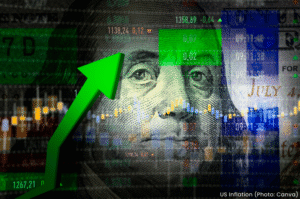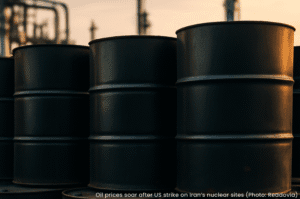Oil prices are wobbling again — and no, it’s not just market drama. Tensions between Israel and Iran are shaking global energy markets, and the ripple effects could hit a lot closer to home than you’d think.
This week, Brent crude dipped below $85 a barrel and U.S. oil held steady near $81. Not exactly panic territory, but here’s the thing: just days ago, prices were climbing fast on fears the conflict could spill into a broader regional war. That kind of uncertainty creates what traders call a geopolitical premium — basically, prices rising not because of supply issues, but because of the threat of them.
So far, nothing has actually disrupted the flow of oil. But markets are twitchy. The Strait of Hormuz — a key shipping route for about 20% of the world’s oil — is in the spotlight. If that gets blocked, even briefly, we’re talking major price spikes across the board.
Here’s where it hits your wallet: higher crude prices can mean higher prices at the pump. If you’re road-tripping this summer or filling up weekly, that extra 20 or 30 cents per gallon adds up fast. And it’s not just gas. Rising oil costs can impact airline tickets, shipping fees, and — yep — groceries.
Meanwhile, Wall Street’s watching, too. The oil volatility index has surged nearly 26% this month, showing just how nervous investors are. If things escalate overseas, the market could lurch, and with it, your portfolio or 401(k).
So while oil isn’t breaking records just yet, this moment is a reminder: foreign policy can shake up your finances just as much as inflation or interest rates. And sometimes, a distant headline becomes tomorrow’s bottom-line story.
The Author

Aiden West
Staff Writer, Readovia






















































